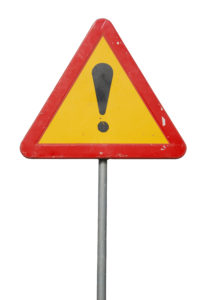Quick links, bringing you great articles on writing from all over the web.
There seems to be some connection between being creative and fearful. We are capable of imagining great things but the flip side is being able to imagine horrible things too. Whether you suffer from paralyzing fear or know someone who does, this is a great article by over at All Indies Writers.
~ * ~
 Creative work is unlike any other job you could take on. When you create, you leave a piece of yourself behind for the world to see. There’s a certain amount of vulnerability involved.
Creative work is unlike any other job you could take on. When you create, you leave a piece of yourself behind for the world to see. There’s a certain amount of vulnerability involved.
That vulnerability can make it difficult to separate you, the artist, from your art. And that can lead to paralyzing fear of sharing your work.
If you’ve ever dreaded sharing a creative project for fear of being judged, you’re not alone.
Many creative professionals go through this, including me.
And, this year, I’ve decided it’s time to tackle this fear and lack of confidence head-on. Are you ready too?
Creative Comfort Zones
The funny thing about creative projects is they aren’t all created equal. (Or at least they aren’t for me.)
Take freelance writing for example, or blogging even.
Those are “easy” creative projects for me in that I don’t have the same kind of vulnerability or attachment I have with other types of art. The same thing is true with photography.
These are things I’m pretty open about sharing.
But that’s far from the extent of my creative interests.

 How many unfinished and abandoned manuscripts do you have? Author and blogger Janice Hardy shares her insight on the dilemma all writers face.
How many unfinished and abandoned manuscripts do you have? Author and blogger Janice Hardy shares her insight on the dilemma all writers face.  Way, way back in September of 2013 I wrote
Way, way back in September of 2013 I wrote  By
By  Greetings from the road! I’m out on book tour promoting
Greetings from the road! I’m out on book tour promoting  I wrote this post in 2015, but I’ve added a snippet at the end that’s actually an announcement tied to acknowledgments. So read on!
I wrote this post in 2015, but I’ve added a snippet at the end that’s actually an announcement tied to acknowledgments. So read on! No matter how great a book’s cover and blurb, one thing can stop me from buying yet another ebook for my Kindle: an author bio on the buy page that screams “amateur.”
No matter how great a book’s cover and blurb, one thing can stop me from buying yet another ebook for my Kindle: an author bio on the buy page that screams “amateur.” I’ve been asked by writers and others if I’d ever query traditional publishers again.
I’ve been asked by writers and others if I’d ever query traditional publishers again. Let’s face it: writing isn’t always easy. Sure, it’s fun when we’re in the zone, when we have a brilliant idea in mind and the words just seem to flow. But most of the time?
Let’s face it: writing isn’t always easy. Sure, it’s fun when we’re in the zone, when we have a brilliant idea in mind and the words just seem to flow. But most of the time? What is the secret of your success?
What is the secret of your success?
 This guest post is by Kristen Harnisch. Harnisch is the award-winning author of
This guest post is by Kristen Harnisch. Harnisch is the award-winning author of  One Halloween during my childhood, I was waiting in our backyard to go trick or treating. I was dressed as a scarecrow. This was in the days when you made your own costume from what you had readily available. Our backyard had grass and straw, so I was literally stuffing myself when I looked up and saw a skeleton climbing our back fence. My heart skipped several beats. I froze. My eyes were glued on the glowing bones which were rapidly coming towards me. I was squinting in the darkness to try to get my mind to understand what I was seeing; my mind felt that I should run and instructed my legs to do so. In tears as I raced into the house, I was about to tell my entire family to hide from the skeleton, when the back door opened and in walked one of my brother’s friends. My skeleton had a name. Randy. His costume was store bought and therefore, the coolest one around because it glowed in the dark. I was embarrassed that the terror I felt came from my belief that the skeleton was real and dangerous.
One Halloween during my childhood, I was waiting in our backyard to go trick or treating. I was dressed as a scarecrow. This was in the days when you made your own costume from what you had readily available. Our backyard had grass and straw, so I was literally stuffing myself when I looked up and saw a skeleton climbing our back fence. My heart skipped several beats. I froze. My eyes were glued on the glowing bones which were rapidly coming towards me. I was squinting in the darkness to try to get my mind to understand what I was seeing; my mind felt that I should run and instructed my legs to do so. In tears as I raced into the house, I was about to tell my entire family to hide from the skeleton, when the back door opened and in walked one of my brother’s friends. My skeleton had a name. Randy. His costume was store bought and therefore, the coolest one around because it glowed in the dark. I was embarrassed that the terror I felt came from my belief that the skeleton was real and dangerous.
 Today I want to talk about how having clear boundaries can HELP you gain momentum in three key areas:
Today I want to talk about how having clear boundaries can HELP you gain momentum in three key areas: